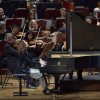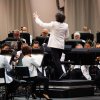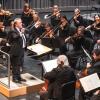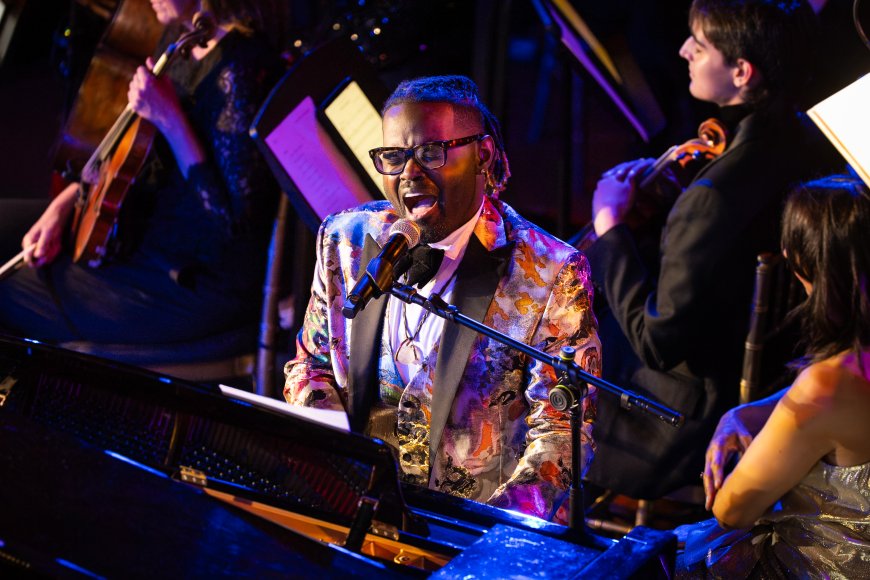
Under soft pastel lights of the Art Deco Ballroom at Cicada Restaurant and Lounge, the Los Angeles Chamber Orchestra stepped out of the concert hall and into the warmth of a midcentury supper club. Sequined dresses caught the light, silk ties shimmered, and a pre-show swing dance lesson eased the evening into smiles and laughter. By the time pianist and curator Lara Downes welcomed the crowd during the Oct. 4 concert, the night already felt like a bridge to another time.
During the one night only concert, Reflections in Song, this Los Angeles institution treated the music of Duke Ellington with the same clarity it gives to Bach. It was great music: elegant, unforced, and steeped in the craft of musicians who know how to make a room move. With arrangements by Chris Walden and a roster of LA’s most in-demand players, the concert unfolded with composure and verve.
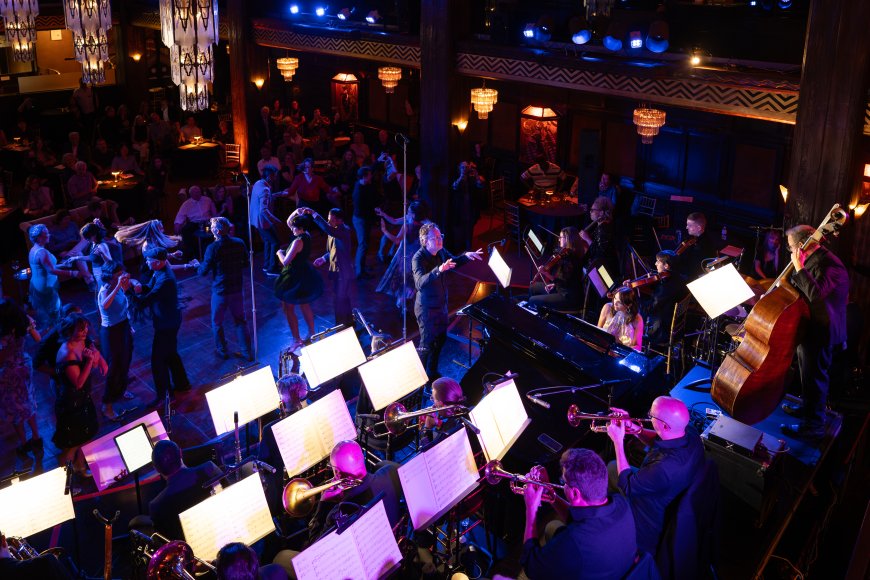
The set opened with Ellington’s “It Don’t Mean a Thing (If It Ain’t Got That Swing).” Countertenor John Holiday’s virtuosic voice blended seamlessly into the ensemble — it felt like an extension of the orchestra itself. His phrasing landed exactly where it needed to, graceful on the surface and grounded in impeccable technique. As lead trumpet Wayne Bergeron propelled the band forward with his bold, unmistakable tone, the crowd responded in kind.
By the next tune, “Take the ‘A’ Train,” dancers had filled the floor, turning the Cicada into a shimmering whirlpool. Holiday’s delivery glided above the band’s brass accents and sax riffs, while Peter Erskine’s drums gave the rhythm life — not loud, just inevitable.
The quieter moments landed just as deeply. In Billy Strayhorn’s “Lush Life,” Downes and cellist Giovanna Clayton shaped a duet of understated beauty: the cello’s upper lines floated and its low register sighed. Downes’s touch, equal parts ballroom and barroom, guided the melody with clarity and grace, never overselling its sentiment.
Later, Strayhorn’s “A Flower Is a Lovesome Thing” began with muted winds and whispering strings before easing into a nostalgic dance pulse. Walden’s chart revealed Strayhorn’s modernist harmonies without losing a trace of lyricism. Similarly, Ellington’s “Come Sunday” offered grace and reflection. Holiday’s voice carried an almost devotional stillness, suspended above Walden’s lush, transparent orchestration.
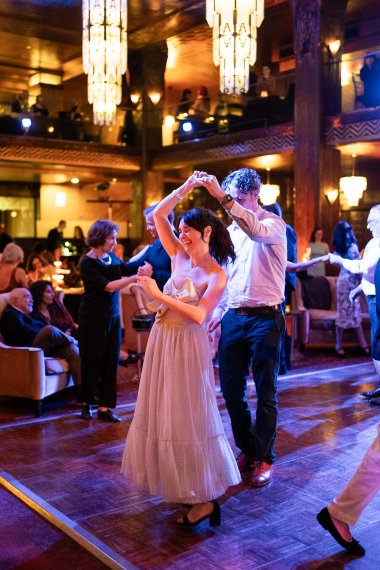
The set pivoted gracefully from swing to cinema with a medley of Miklós Rózsa’s Spellbound Love Theme and Erich Korngold’s Romance-Impromptu. Downes introduced the medley with a reflection on the émigré composers who, in the 1930s, fled prewar Europe to find refuge in Los Angeles. Violinist Josefina Vergara and Clayton were featured, their phrasing distinct yet cut from the same elegant cloth.
A luminous viola melody from Nicolas Valencia opened Charlie Chaplin’s “Smile” before the night closed with Harold Arlen’s “Get Happy.” Holiday beamed, his gold suit catching every spotlight, while Erskine drove the horns through a shouted chorus.
Ellington once described music that inspired him as “beyond category.” Los Angeles has always blurred the lines between jazz club, concert hall, and film set, and Reflections in Song was a fitting tribute to the city as much as to the great composer. For a few hours, Ellington’s ideal and Los Angeles’ identity seemed to be perfectly in tune.


